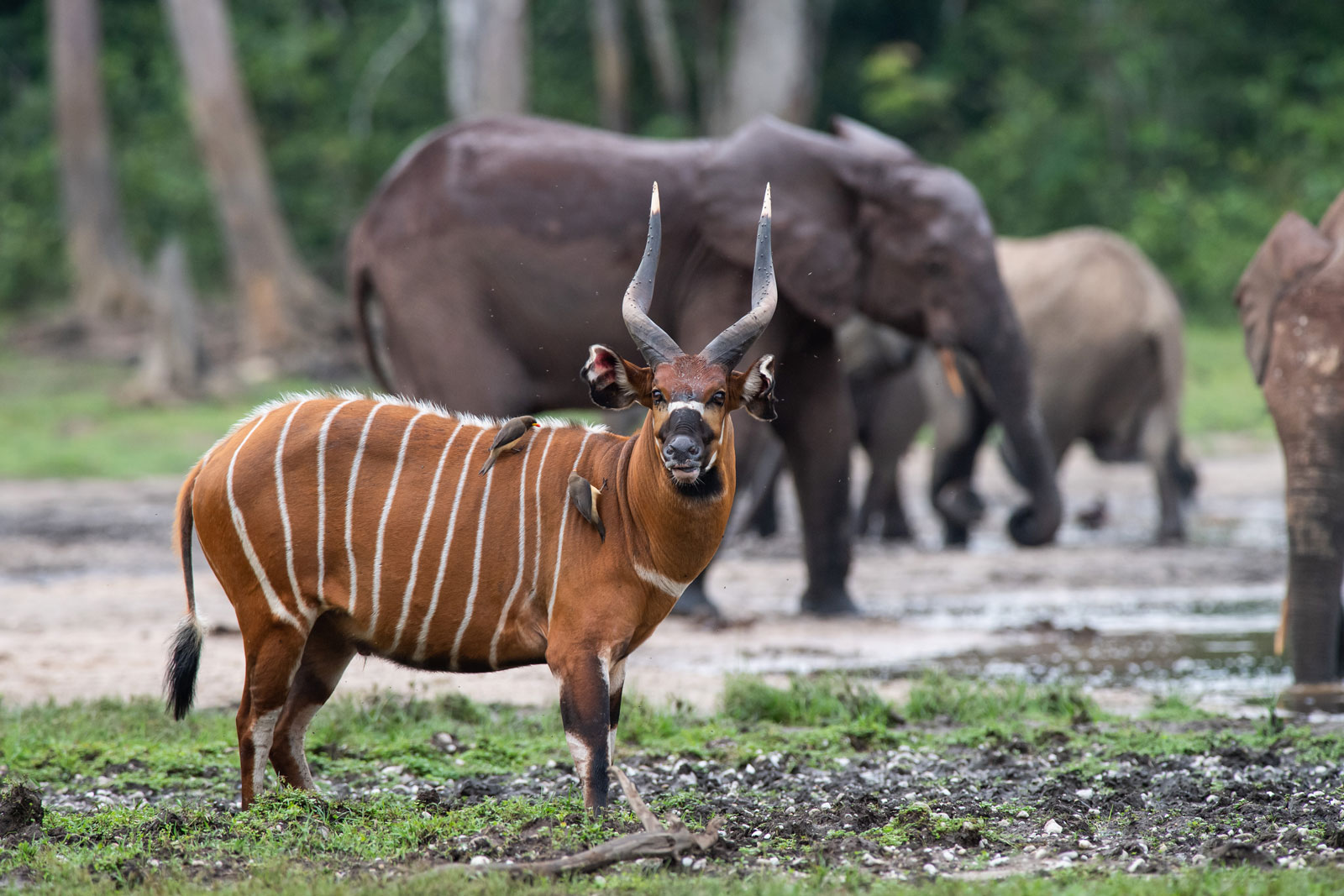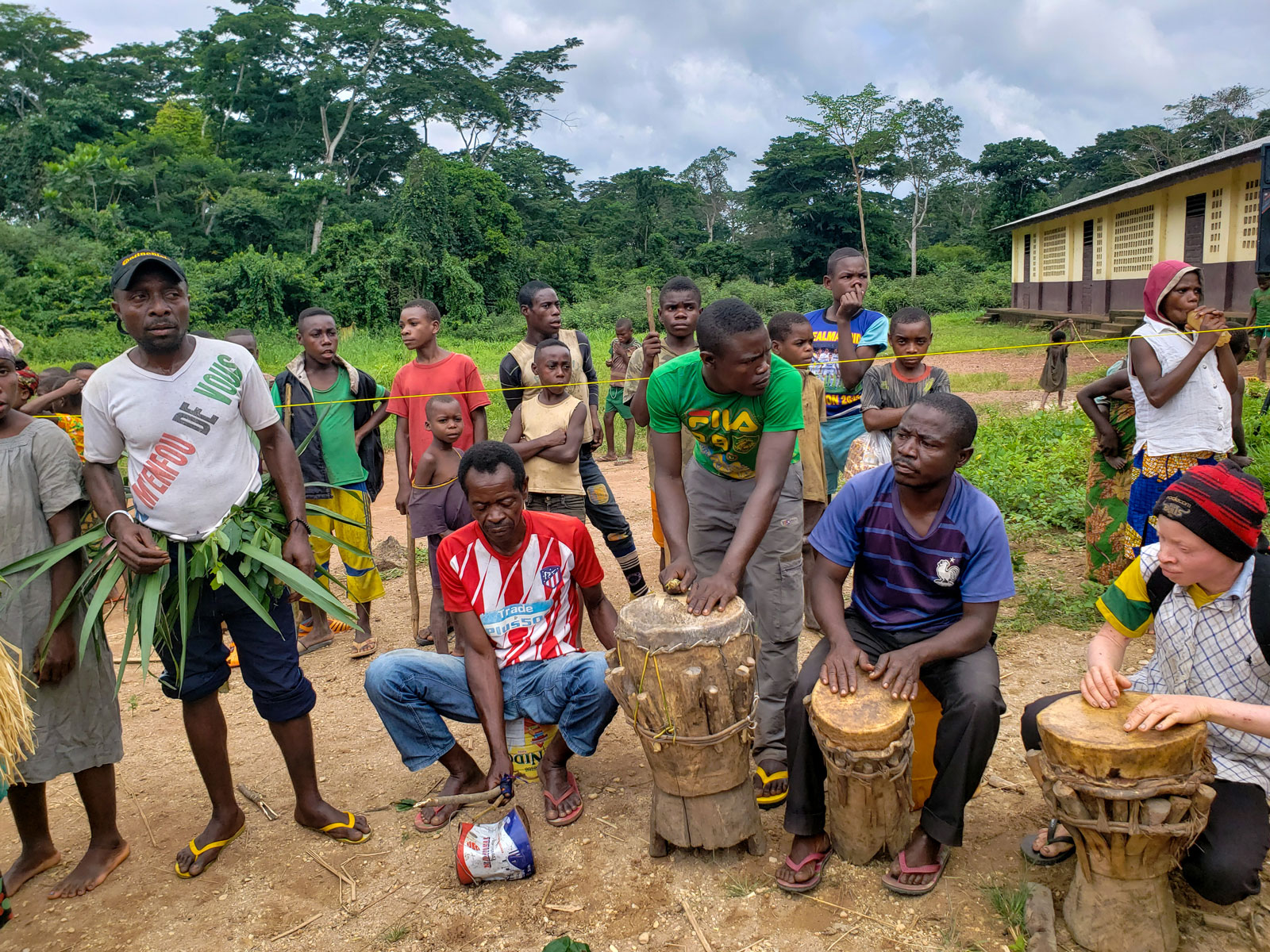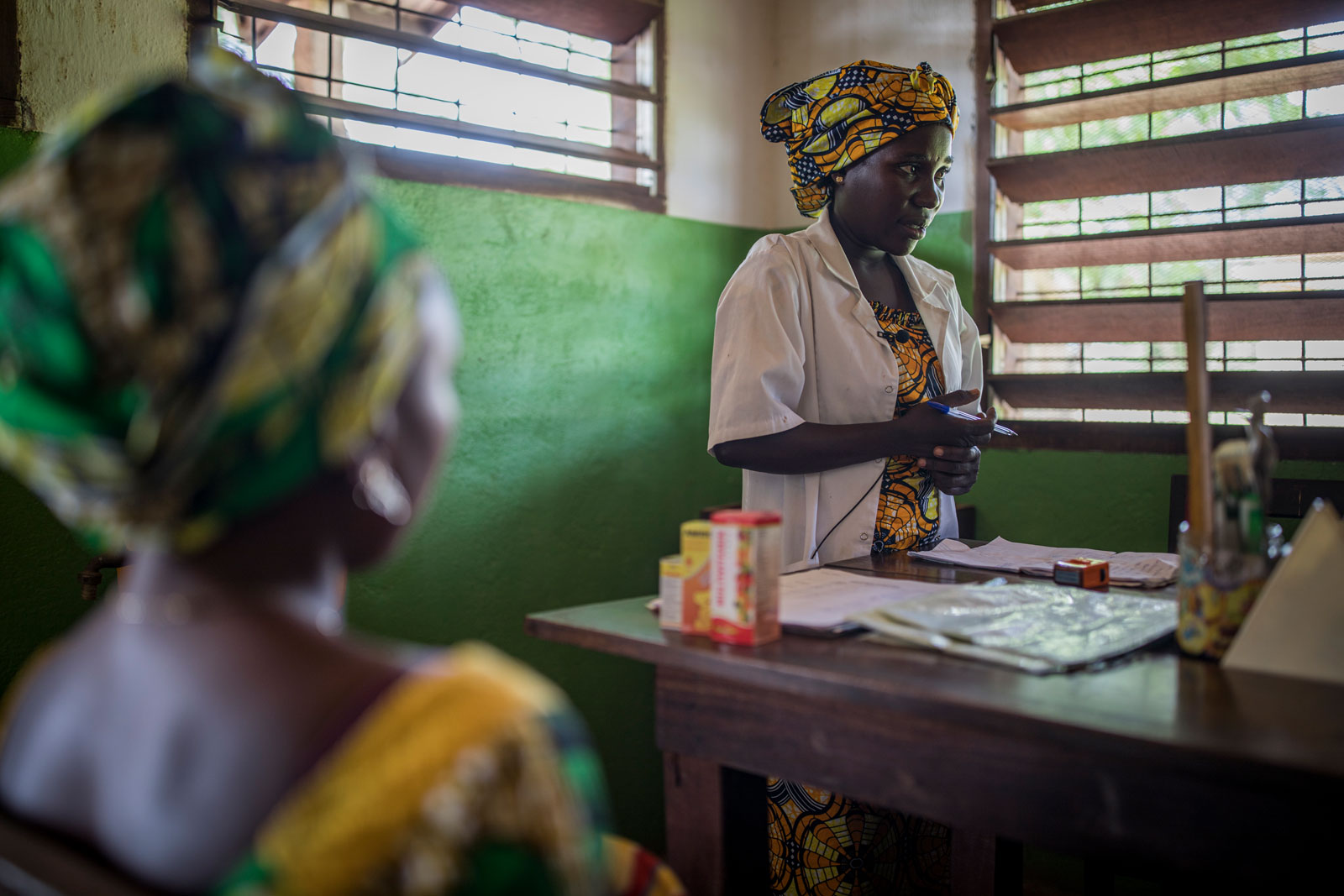
The initiatives for people and nature are both diverse and innovative: Promoting schools, creating new income opportunities, empowering indigenous people and strengthening their rights, or passing on traditional knowledge.
The Ndima Kali Youth Group
In 2012, with the help of the NGO OrigiNations e.V., a group of young BaAka and Sangha Sangha called Ndima Kali was founded. Their goal is to keep the cultural and natural heritage of the BaAka and Sangha alive. Jeanne Boloukoa is a member of Ndima Kali. She is a BaAka and still carries the wisdom of her ancestors. As traditional knowledge is at risk of disappearing, Jeanne Boloukoa leads groups of young BaAka into the rainforest. She teaches them about medicinal plants, how to harvest honey or the traditional dances of their cultural heritage.
Keeping ancestral wisdom alive is one of many projects of Ndima Kali. Another activity consists of plays performed by members of the youth group in the surrounding villages. Through their stories, they make the audience both laugh and think. One such performance was on the Ebola disease, a serious topic about which many local people know far too little. The young men and women of Ndima Kali interact with other villagers, through activities such as traditional mat weaving, making of musical instruments or hunting nets, or staging of discussions.
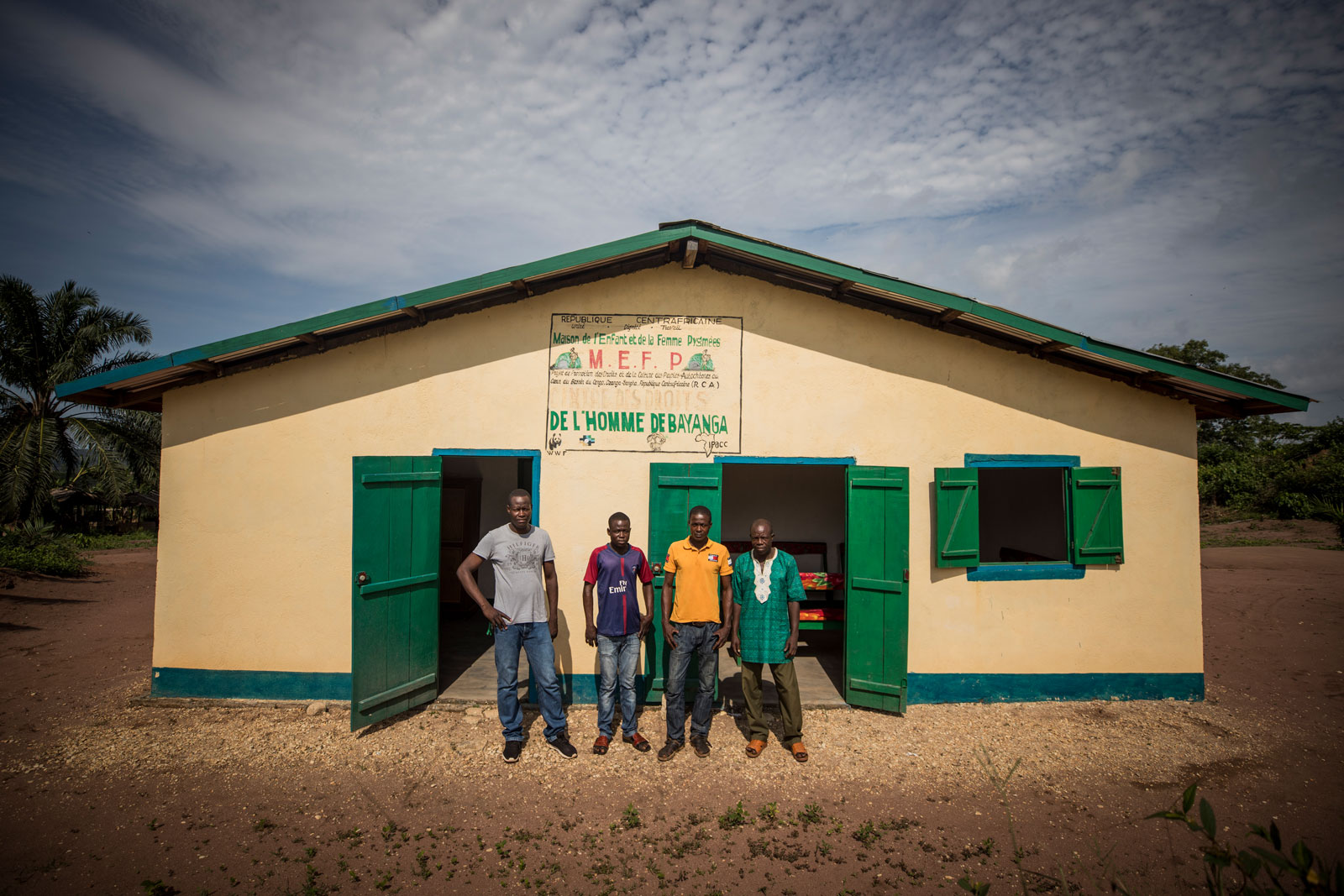
Center for Human Rights
A center for human rights has been present in Bayanga, the largest village of the region, since 2015, as part of the Central African organization MEFP (Maison de l’Enfant et de la Femme Pygmées). This focal point for human rights could serve as a model for other conservation projects in the Congo Basin. What rights do I have? And how can I enforce them? BaAka and other local people can find answers to such questions at the center. The staff also give support for the issuance of birth certificates. This official document is essential for individuals to prove their legal existence and claim their rights as a citizen. Whenever necessary, a human rights lawyer accompanies the BaAka to the police or the judicial authority. Capacity-building for local and administrative authorities and ecoguards on human rights issues is one of the main areas of intervention of this center, with the objective of integrating human rights into all aspects of socio-economic life within the Dzanga-Sangha Protected Areas.
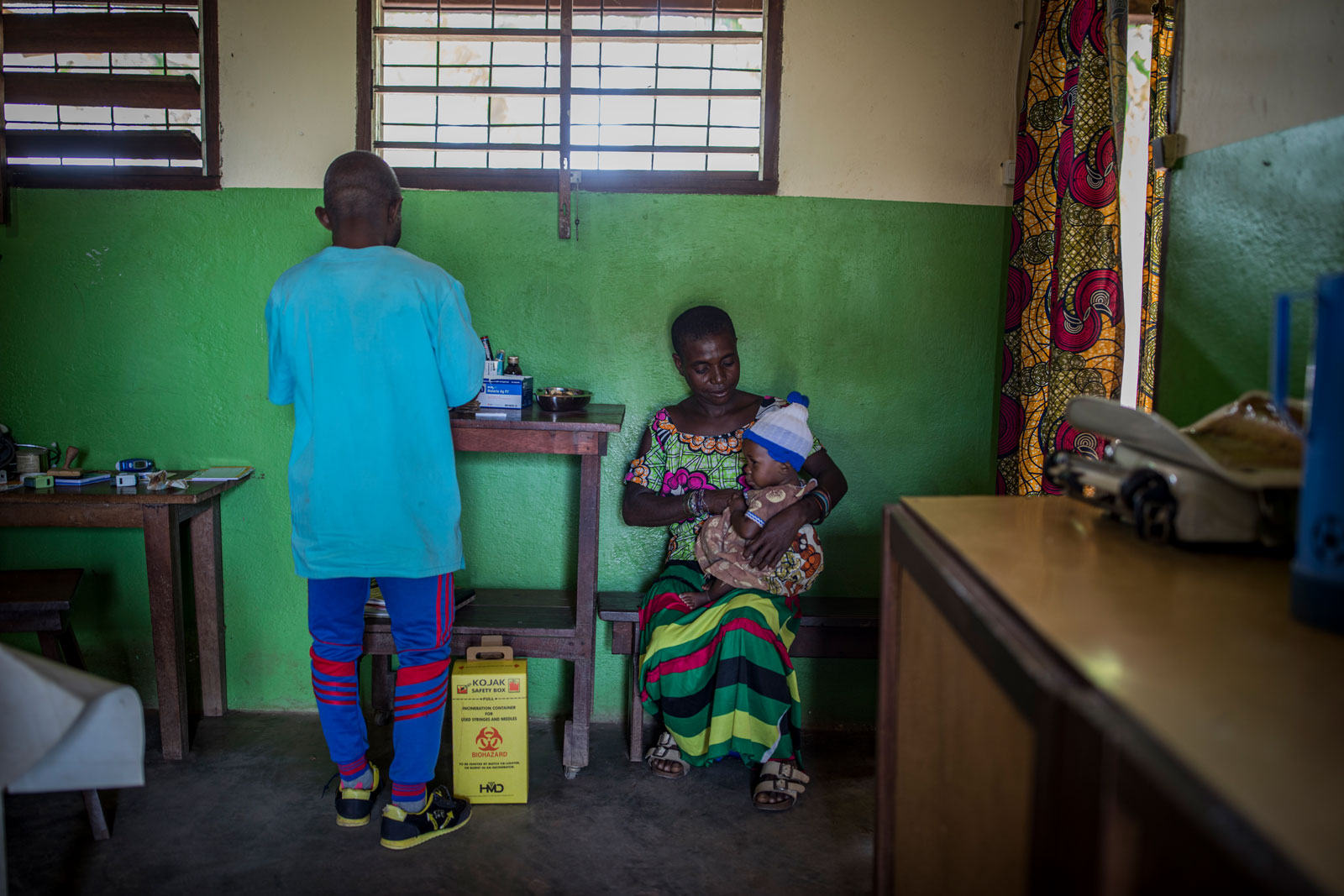
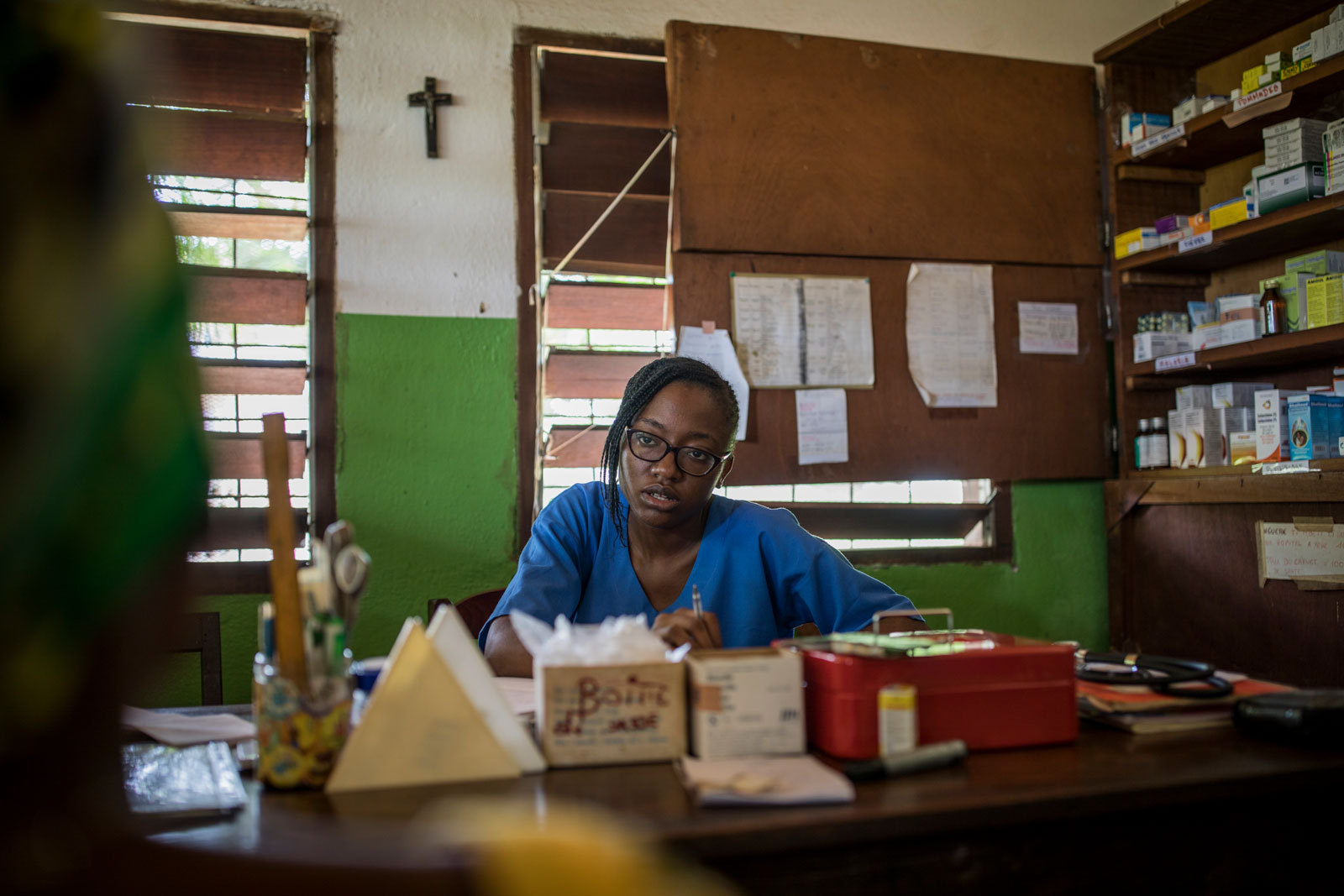
Community Health
The health component consists of three programs.
1. Support through a mobile unit
Providing good health care is a high priority in Dzanga-Sangha. With a mobile clinic, a team of three doctors, four nurses and two midwives bring medical help to remote villages. In cooperation with the two local organizations, Action pour le Développement Intégral des Humains (ADIH) and Societé des Missions Africaines (SMA) of the Central African Republic, and the hospital in Bayanga, the team provide help and health care, from the treatment of serious infectious diseases to dental treatment. Preventive measures include vaccinations and, most importantly, education: What are the dangers of eating bushmeat? How are diseases like Ebola transmitted? Which hygiene measures are important? Armed with this knowledge, people can recognize dangers earlier and protect themselves better against infectious diseases.
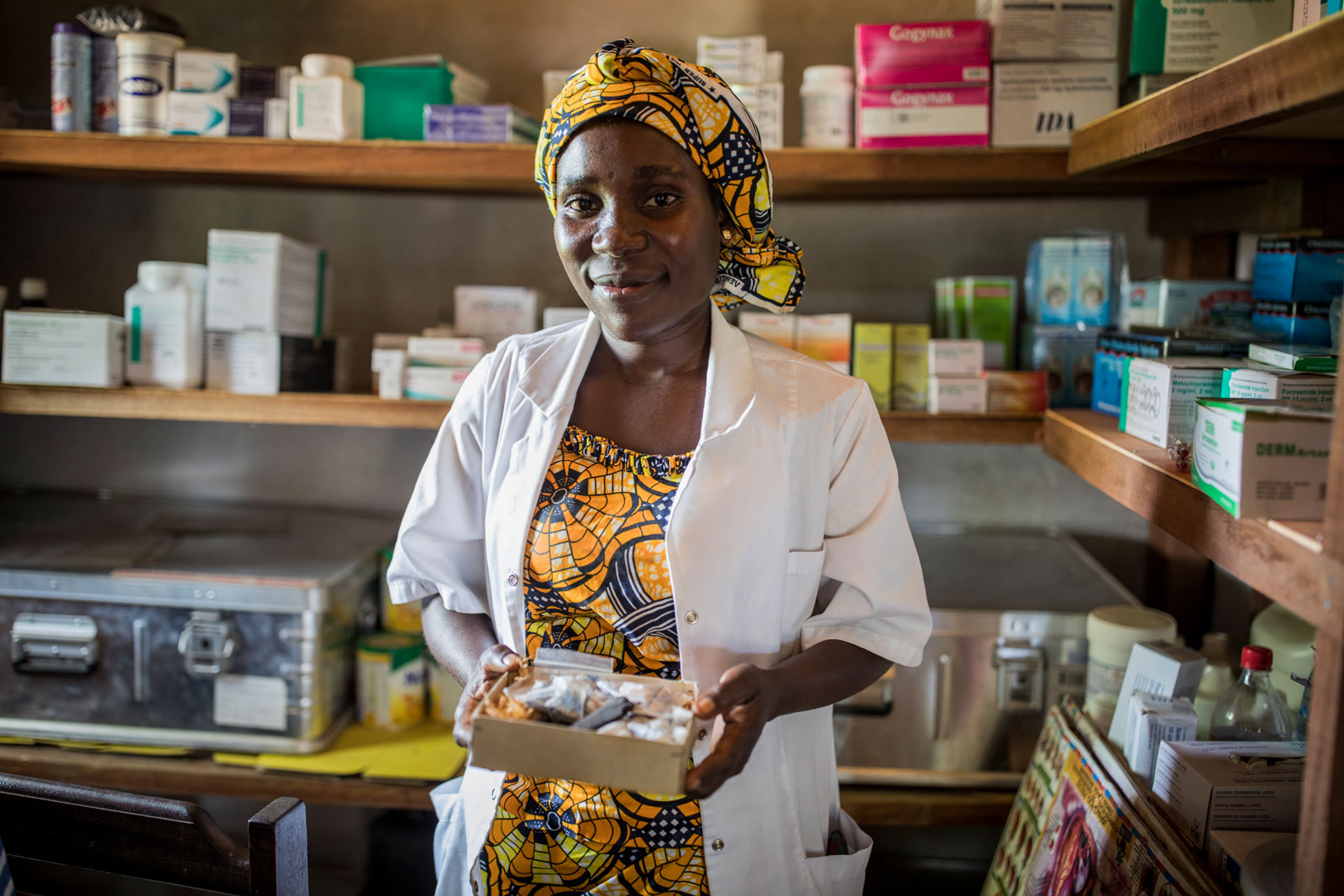
2. Health care centers
We collaborate with non-governmental organizations working in the humanitarian field within the Dzangha-Sangha Protected Areas, in particular Action pour le Développement Integral des Humains (ADIH) and Societé des Missions Africaines (SMA). Thanks to the construction of new health care centers, renovation of existing centers, recruitment of new staff, and ongoing training in administrative and financial management, these partners can now receive and treat a greater volume of patients. The aim is to improve local communities’ access to adequate care.
3. Health care through the organization of visits by health specialists
Health specialists from all over the world are invited to the Dzangha-Sangha Protected Areas for pathological cases requiring careful management by qualified personnel. This program reduces the cost of medical evacuations for cases that cannot be treated in the region, while aiming to build local capacity.
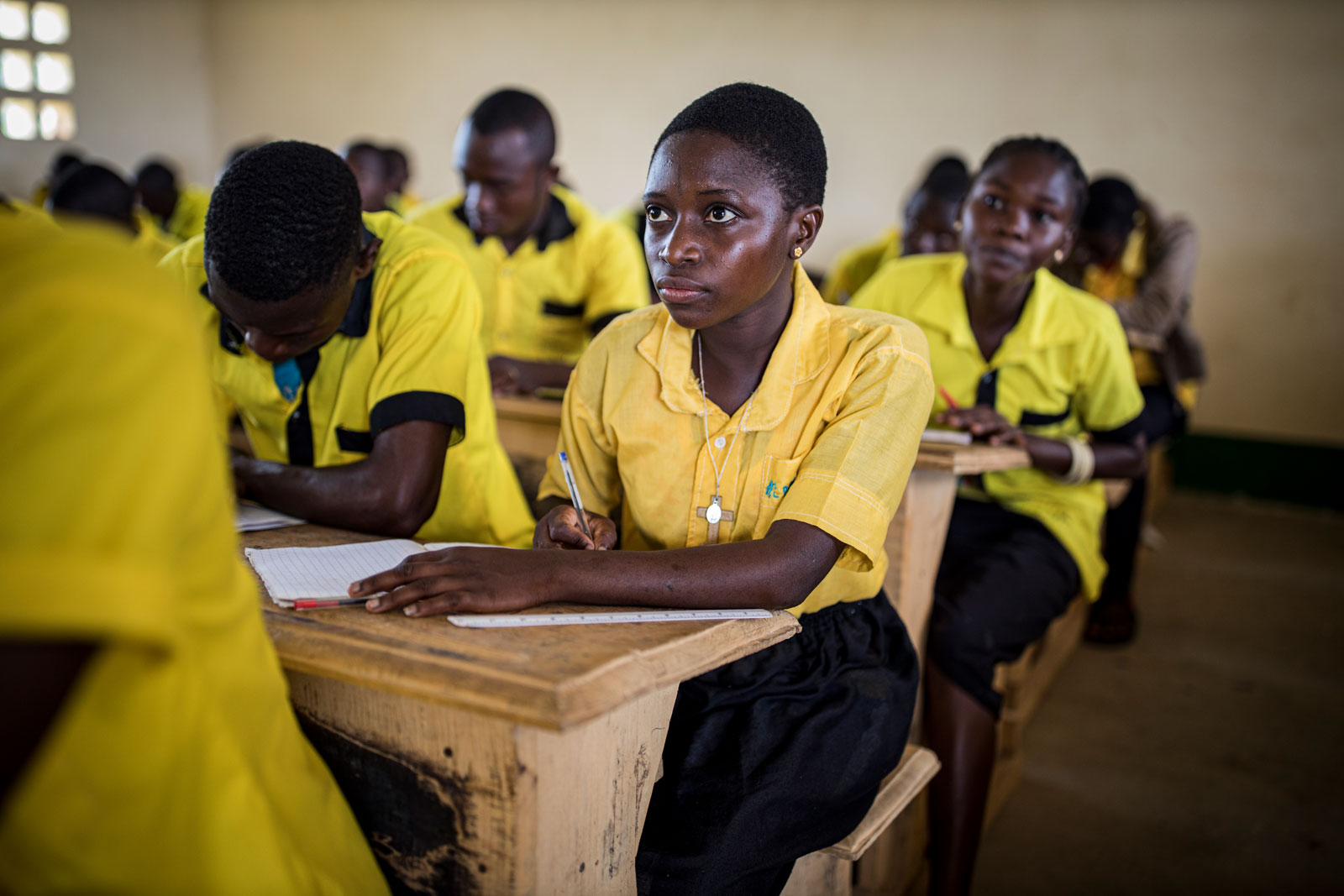
Education
A good school education increases the chances of shaping one’s own future. For the villagers of Dzanga-Sangha, education is anything but a matter of course. The situation is particularly difficult for the indigenous BaAka and Sangha Sangha. It is virtually impossible for many families to pay the school fees. School and examination periods are often incompatible with the traditional ways of life within their communities. Children who nonetheless finish primary school have another problem: There is only one secondary school in the project area, in Bayanga, but it is 50 kilometers away from the villages in the south and north, much too far for the daily commute to school!
We are committed to improve this situation and enable more children to attend school with our partners ADIH, SMA and the Ministry of Education. An important step was the construction of two school residences in Bayanga in 2016 – one for boys and one for girls. Here, children and young people from the villages can live and eat during school hours – and thus continue to learn. There is also a care program for students attending high school in Berberati.
We are committed to improve this situation and enable more children to attend school.
The primary schools in the DSPA are also receive support in the form of money for text and exercise books, and other teaching material. In addition, in 2019, the school fees of 758 BaAka children and the salaries of 34 teachers were covered. In result, over 1,300 children were able to attend school.
For BaAka and Sangha-Sangha students living far away from Bayanga, two school residences were built to accommodate them and allow their access to secondary education in Bayanga. Students reaching high school are transferred to Berberati to continue their studies. As education is paramount to the objectives of the Dzangha-Sangha Protected Areas, our support extends to the university level. Two BaAka students were enrolled in the Faculty of Legal and Political Sciences during the 2019-2020 academic year.
